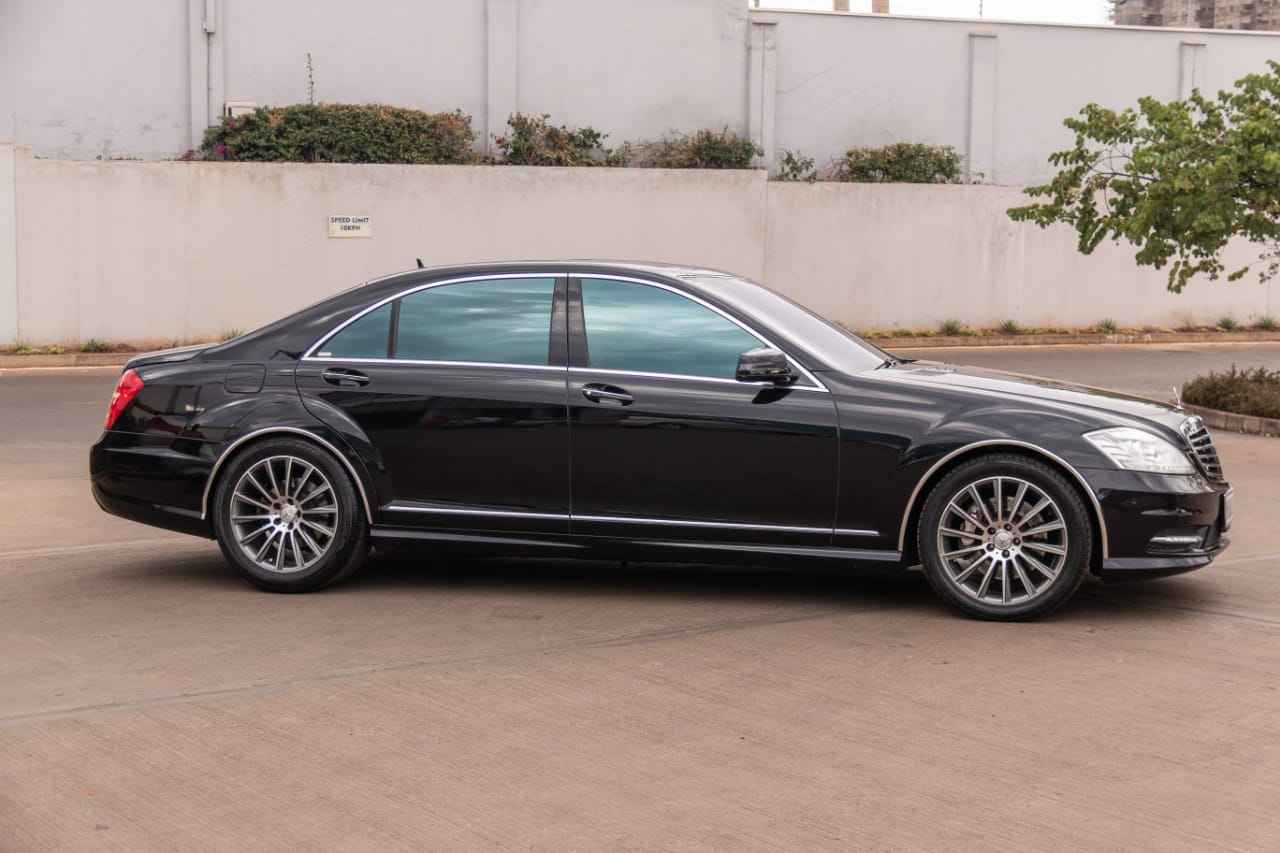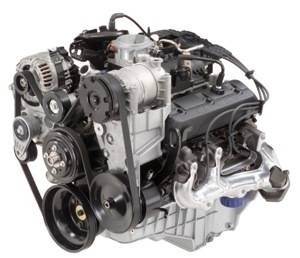In the world of automotive engineering, the Mercedes M282 engine has been a topic of discussion among enthusiasts and professionals alike.
This powertrain, known for its integration into various Mercedes models, has raised questions regarding its reliability and performance.
While it boasts innovative technology and efficiency, some users have reported issues that merit attention.
In this article, we delve into the intricacies of the M282 engine, examining the common problems that have surfaced since its inception.
From oil consumption concerns to carbon build-up, we aim to provide a clear overview of what M282 engine owners might encounter, ensuring you’re well-informed about this sophisticated piece of machinery.
Which Mercedes engines have timing chain problems?
Mercedes engines, particularly some V6 and V8 models such as the M272 and M273, have been known to experience timing chain issues.
Common symptoms of these problems include unusual rattling sounds from the engine, check engine light activation, metal shavings in the oil, and performance issues like reduced acceleration and efficiency.
Owners need to maintain regular service intervals and address any symptoms or warning signs promptly to ensure the longevity and reliability of their engines
What kind of oil does a M272 engine take?
The Mercedes M272 engine requires full synthetic oil that meets the MB229.5 specification. The recommended oil weights for this engine are 0W-30, 0W-40, 5W-30, or 5W-40.
Popular choices include Mobil1 0W40, Havoline Pro-DS Euro 5W-40, and Liqui Moly 2332 Leichtlauf High Tech 5W-401. The oil capacity for the M272 engine is 7.3 quarts. It’s important to use a fleece oil filter, specified as A000 180 26 09 when changing the oil.
Why is a Mercedes engine noisy?
A Mercedes engine can be noisy for several reasons, such as:
-
- Worn-out or loose belts: The serpentine belt can wear down over time, leading to a squealing or whining sound.
- Exhaust system issues: Problems like a cracked manifold or a failing catalytic converter can create loud noises.
- Engine misfire: This can be due to faulty spark plugs, ignition coils, or fuel injectors.
- Timing chain or tensioner problems: If these fail, you might hear a rattling noise.
- Low or dirty oil: Proper oil maintenance is crucial for a quiet engine operation
-
Is The M272 An Interference Engine?
Yes, the Mercedes M272 is an interference engine. In an interference engine design, the valve’s stroke and piston’s path overlap within the engine’s combustion chamber. This means that if the timing chain or belt fails, there is a risk of the valves and pistons colliding, which can cause significant engine damage.
The M272 engine, which was introduced by Mercedes-Benz in the mid-2000s, utilizes a timing chain rather than a belt. While timing chains generally have a longer service life than belts, the M272 has been known for issues with the balance shaft gear, particularly in models produced between 2004 and 2008.
If the balance shaft gear wears down, it can lead to timing issues, potentially resulting in the interference of pistons and valves, which can cause catastrophic engine failure.
Important: Mercedes Benz Collision Prevention Assist: Meaning & Solution
Why is my Mercedes losing power?
Loss of power in a Mercedes can be due to a variety of reasons. Common causes include:
- Fuel System Issues: Problems with the fuel pump, a clogged fuel filter, or low fuel pressure can restrict the flow of fuel to the engine, leading to power loss.
- Air Intake Blockages: Any blockage in the air intake system, such as a dirty air filter, can prevent the engine from getting the air it needs for combustion.
- Turbocharger Failure: If your Mercedes is equipped with a turbocharger and it fails or stops blowing when you press the gas pedal, it can result in a significant loss of power.
- Ignition Issues: Cylinder misfires due to faulty spark plugs, ignition coils, or fuel injectors can cause the engine to lose power.
- Exhaust Restrictions: A clogged catalytic converter or exhaust manifold can restrict the exhaust flow, causing a drop in engine performance.
- Sensor Malfunctions: Faulty sensors, such as the MAF sensor, oxygen sensor, or camshaft position sensor, can send incorrect data to the engine control unit, affecting the engine’s power.
Why is Mercedes shaking?

A Mercedes can shake for various reasons, often related to the vehicle’s wheels, tires, or brakes. Common causes include:
- Damaged Tires or Rims: Tires that are old, worn, or damaged can cause the car to shake. Issues like bubbles or uneven surfaces on the tires can lead to vibrations.
- Improper Tire Balance: Over time, tires can lose balance, causing the car to vibrate. This may require rebalancing at a tire shop.
- Faulty Brake Rotors: If the car vibrates more when lightly pressing the brake pedal and the steering wheel shakes, it could be due to worn or damaged front brake rotors.
- Worn Suspension Components: Components like shocks, struts, bushings, or sway bar links that are worn can lead to shaking.
- Engine Issues: Problems at idle, such as worn spark plugs, dirty fuel intake, or broken motor mounts, can cause the car to shake.
How do I know if my Mercedes transmission is bad?
Recognizing a failing transmission in your Mercedes can be crucial to avoid further damage. Here are some common signs that may indicate a problem with the transmission:
- Slipping Transmission: If the transmission seems to be slipping between gears, revving higher than usual during gear changes, or the car is struggling to accelerate, this could be a sign of transmission issues.
- Grinding or Shaking: Any unusual grinding or shaking sensations during gear shifts could indicate a problem with the transmission’s gears or clutch.
- Difficulty Shifting Gears: If you’re experiencing resistance or delay when trying to shift gears, this could be due to low transmission fluid, a damaged shifting cable, or a worn clutch.
- Delayed Engagement: A noticeable delay when shifting from “Park” to “Drive” or “Reverse” could be a symptom of transmission trouble.
- Leaking Fluid: Transmission fluid is vital for smooth operation. If you notice a reddish fluid under your car, it could be a transmission fluid leak, which can lead to serious problems if not addressed.
Why do Mercedes need so much maintenance?
Mercedes-Benz vehicles are known for their luxury and performance, which come with a need for meticulous maintenance to ensure their longevity and reliability.
Here are some reasons why Mercedes may require more frequent maintenance:
-
Advanced Technology
Mercedes vehicles are equipped with cutting-edge technology and complex systems that require specialized knowledge and tools to maintain.
-
Quality Parts
The high-quality materials used in Mercedes parts are designed for durability and performance, but they also necessitate proper care and can be costly to replace.
-
Performance Standards
Mercedes cars are engineered for high performance, which means regular maintenance is essential to keep them running at peak condition.
-
Routine Services
Regular services like oil changes, brake inspections, and fluid level checks are crucial for maintaining the car’s value and preventing major repairs.
Why does my Mercedes not start sometimes?
Intermittent starting issues in a Mercedes can be frustrating and may be caused by several factors. Here are some common reasons:
- Low Battery Voltage: A weak or dying battery is often the culprit. It may not hold enough charge to start the engine every time.
- Faulty Starter Motor/Relay: The starter motor or its relay might be failing, leading to inconsistent starting.
- Key Fob/Ignition Switch Issues: If the key fob or ignition switch is malfunctioning, the car may not recognize the command to start.
- Fuel System Problems: A defective fuel pump, clogged fuel filter, or issues with the fuel injectors can prevent the engine from starting.
- Electrical Issues: Damaged fuses, wiring problems, or a bad alternator can lead to starting difficulties.
- Engine Sensor Failures: Faulty sensors, such as the crankshaft position sensor, can cause intermittent starting problems.
What is the Mercedes piston issue?

The Mercedes piston issue primarily concerns the M274 engine, where a class action lawsuit alleges that the pistons in this engine are prone to premature failure. This defect can lead to significant engine damage and often requires a complete engine replacement.
The issue has been significant enough to attract the attention of the National Highway Traffic Safety Administration for investigation. The lawsuit claims that Mercedes-Benz has failed to disclose this defect to drivers, despite being aware of the problem due to numerous reports and complaints from vehicle owners and lessees.
The piston failure can occur without warning and may result in sudden and unexpected engine failure, posing a safety risk.
Important: SRS Malfunction Mercedes Car Won’t Start: What Next?
Is The M282 Engine Reliable?
Reliability is a crucial aspect of any engine, and the M282 has been subject to scrutiny. It’s built around an aluminum, open-deck style cylinder block with a bore spray plasma coating on cylinder walls, enhancing heat conductivity and reducing friction. The crankshaft and connecting rods are forged steel, and the pistons have an Eco-Tough coating for optimized friction.
The engine’s oiling system includes a variable displacement oil pump that adjusts capacity based on engine needs, and oil squirters that help cool the pistons. The cylinder head, developed by Mercedes, features a unique triangular design with semi-integrated intake and exhaust manifolds, and the camshafts come with variable cam-phasing.
A key component is the mono scroll turbocharger with an electronically controlled wastegate. The direct fuel injection system ensures efficient combustion, and the engine is equipped with a single-row timing chain designed to last the engine’s lifetime.
In terms of reliability, the M282 engine has received above-average remarks. Its design elements, such as the plasma-coated cylinder walls and variable oil pump, contribute to its durability. However, as with any engine, maintenance plays a pivotal role in longevity. Regular checks and adherence to service intervals are essential to maintain the engine’s performance and reliability.
What Cars Have The M282 Engine?
The Mercedes M282 engine, a collaboration between Mercedes-Benz and the Renault-Nissan-Mitsubishi Alliance, is a testament to modern engineering and global partnership. This 1.3-liter turbocharged power unit has been integrated into a range of Mercedes-Benz models, showcasing its versatility and adaptability across different vehicle classes.
Mercedes-Benz Models Featuring the M282 Engine:
- A-Class (W177): The A-Class was among the first to receive the M282 engine, starting with the A200 variant in 2018, followed by the A250e.
- B-Class (W247): The B-Class lineup, including the B180 and B200, as well as the B250e, also features this engine, offering a balance of efficiency and performance.
- CLA-Class (C118/X118): The stylish CLA 180, CLA 200, and CLA 250e are powered by the M282, delivering a sporty driving experience.
- GLA-Class (H247): The compact GLA 200 SUV, including the FFV Engine variant in Thailand, benefits from the engine’s compact design and power.
- GLB-Class (X247): The GLB 200, a larger SUV option, utilizes the M282 engine to provide a robust and reliable ride.
What Is The Common Problem In M272?
The Mercedes M272 engine, a V6 powerplant that succeeded the M112 engine, has been known for its smooth operation and respectable performance. However, it has also been associated with a few common issues that owners should be aware of. Here are some of the problems:
- Balance Shaft Gear Failure
One of the most significant issues with the M272 is the failure of the balance shaft gear, particularly in models produced between 2004 and 2008. The balance shaft is designed to reduce engine vibration, but the sprocket made from suboptimal materials can wear down, leading to timing issues and potentially catastrophic engine failure. Symptoms of this problem include the check engine light turning on, rough running, and fault codes related to the balance shaft.
- Intake Manifold Flap Failures
The M272’s intake manifold is equipped with adjustable flaps that help manage airflow for optimal performance. However, these flaps can fail, often due to the wear and tear of the linkage or the actuator itself. This can lead to decreased engine performance and efficiency.
- Thermostat Failures
Thermostat issues are another common problem, which can cause the engine to run cooler than the optimal operating temperature. This can result in reduced fuel efficiency and potential long-term damage to the engine.
- Oil Leaks
Oil leaks in the M272 engine can stem from various sources, including the valve cover gaskets, the oil filter housing gasket, and the timing cover gasket. Regular maintenance and checks can help identify and rectify these leaks early on.
Is The Mercedes 1.3 Petrol Engine Good?
This engine is good because:
-
Performance and Efficiency
The M282 engine is designed to offer a smooth driving experience with a respectable power output for its size. It’s capable of delivering performance that is often associated with larger engines, thanks to its turbocharger, which provides a boost in power when needed. The engine’s efficiency is also noteworthy, as it’s engineered to provide good fuel economy, making it a suitable choice for daily commuting as well as longer journeys.
-
Reliability
When it comes to reliability, the M282 engine has received positive feedback. Its construction features an aluminum block with a bore spray plasma coating on cylinder walls, forged steel crankshaft and connecting rods, and pistons with an Eco-Tough coating. These design choices contribute to the engine’s durability. Moreover, the engine includes a variable displacement oil pump and a single-row timing chain intended to last the engine’s lifetime, which are indicative of a focus on long-term reliability.
-
Maintenance
Proper maintenance is key to ensuring the longevity of any engine, and the M282 is no exception. Regular oil changes and adherence to service intervals are crucial. Owners who maintain their vehicles well can expect the engine to last beyond 160,000 miles (250,000 km).
-
User Experiences
Owners have reported satisfaction with the engine’s performance, particularly noting its quick response and quiet operation at cruising speeds. However, some have mentioned it can get noisy when pushed at low speeds, especially with the automatic transmission.
Also Read: What Is The Torque Rating Of The Engine 2.3l Ecoboost Engine?
How Long Does The AMG One Engine Last?
The Mercedes-AMG One, a hypercar with a Formula 1-inspired hybrid powertrain, has an engine that is rated to last approximately 31,000 miles (50,000 kilometers) before needing a rebuild1. This lifespan is reflective of the high-performance nature of the engine and the advanced technology it employs.
While this may seem low compared to conventional passenger cars, it is significant for a hypercar that is built with track performance in mind. The AMG One’s engine showcases the pinnacle of Mercedes-Benz engineering, blending road car requirements with the extraordinary demands of F1 technology.
Why are Mercedes using Renault engines?
Mercedes-Benz’s decision to use Renault engines is part of a strategic partnership that began in 2010 when Daimler AG (Mercedes-Benz’s parent company) and Renault-Nissan-Mitsubishi Alliance entered into a collaboration. This partnership involves sharing technology and resources to reduce costs and accelerate development.
Do Mercedes Engines Last?
Mercedes-Benz engines are renowned for their durability and longevity. A well-maintained Mercedes with a gasoline engine can last upwards of 250,000 miles with proper maintenance, and diesel engines are known to last even longer.
Factors such as regular servicing, driving conditions, and overall vehicle care play a significant role in the lifespan of these engines. Mercedes even offers high-mileage awards to owners who reach certain mileage milestones, which is a testament to the potential longevity of their engines.
Where Are Amg Engines Made?
AMG engines are meticulously crafted at the Mercedes-AMG GmbH production facility located in Affalterbach, Germany. This site is not only where these high-performance engines are assembled but also serves as the headquarters for AMG, the performance subsidiary of Mercedes-Benz.
Each engine is hand-built by a single master technician from start to finish, ensuring the highest level of quality and performance. The “one man, one engine” philosophy is a cornerstone of the AMG brand, reflecting their commitment to precision engineering and exclusivity.
Affalterbach is thus the birthplace of AMG engines, where they are brought to life and prepared to deliver the exceptional driving experiences associated with the AMG name.
Where Are Mercedes Engines Made?
Mercedes-Benz engines are primarily manufactured in-house at several production plants across Germany, including locations in Berlin, Kölleda, and Arnstadt.
How Efficient Is The Mercedes Engine?
The efficiency of an engine can be measured in terms of fuel economy, power output, and thermal efficiency.
-
Fuel Economy
Mercedes-Benz has developed a range of engines that offer excellent fuel economy without compromising on power. This is achieved through advanced technologies such as direct fuel injection, turbocharging, and variable valve timing. These features allow for a more complete and efficient burn of fuel, reducing waste and emissions.
-
Power Output
Efficiency isn’t just about saving fuel; it’s also about getting the most power out of every drop. Mercedes engines are designed to deliver maximum power with minimum fuel consumption. This is evident in their high-performance AMG models, which balance raw power with responsible fuel usage.
-
Thermal Efficiency
Mercedes-Benz has made significant strides in thermal efficiency, particularly with their Formula 1 engines. For example, the Mercedes-AMG F1 engine has achieved over 50% thermal efficiency. Thermal efficiency is the percentage of energy in the fuel that is converted into actual work rather than being lost as heat. Most road car engines are approximately 20-30% efficient, so achieving 50% is a remarkable feat3.
-
Innovation
Mercedes continues to push the boundaries of engine efficiency with ongoing research and development. They have introduced a range of hybrid engines that combine internal combustion engines with electric motors to further enhance efficiency.
Important: GM 5.3 Liter V8 Ecotec3 L83 Engine: Specs, Performance, and Everything You Need to Know!
What Is A Tce Engine?
A TCE engine, which stands for “Turbo Control Efficiency,” is a series of petrol engines developed by Renault and used across various models within the Renault-Nissan-Mitsubishi Alliance. The TCE engines are designed to offer the power and torque of larger engines while maintaining the fuel efficiency of smaller engines.
Key Features of TCE Engines
-
Turbocharged
TCE engines are equipped with a turbocharger, which increases the engine’s efficiency and power output by forcing extra air into the combustion chamber.
-
Direct Injection
This technology allows for precise fuel delivery directly into the combustion chamber, improving efficiency and performance.
-
Variable Valve Timing
TCE engines feature dual variable valve timing, which optimizes engine performance and fuel efficiency by adjusting the timing of the intake and exhaust valves.
-
Bore Spray Coating
Some TCE engines use a plasma-coated bore spray on the cylinder walls, which reduces friction and enhances heat conductivity.
What Is The BHP Of Mercedes A Class 1.3 Petrol Engine?
The engine’s horsepower rating is a measure of its performance capability, indicating how much power it can deliver to the wheels.
With 163 BHP, the M282 engine provides a balance of efficiency and power, making it suitable for everyday driving and ensuring a responsive feel behind the wheel.
The turbocharger helps achieve this level of power by forcing more air into the combustion chamber, allowing for a more powerful explosion and, consequently, more power output from the engine.
Is The Mercedes 1.3 Petrol Engine Good?
Whether the Mercedes 1.3 petrol engine is “good” depends on your priorities and needs. Here’s a balanced overview to help you decide:
Pros
- Peppy performance: Despite its small size, the 1.3L engine delivers respectable power, particularly in the 163bhp version. It feels responsive and provides decent acceleration for most driving situations.
- Fuel efficiency: This engine shines in terms of fuel economy, achieving impressive MPG figures compared to larger engines. This translates to lower running costs and potentially reduced environmental impact.
- Smoothness and refinement: Mercedes is known for its refined engines, and the 1.3L maintains this tradition. It delivers a smooth and quiet driving experience, especially at cruising speeds.
- Modern technology: Featuring direct injection, turbocharging, and cylinder deactivation, this engine benefits from modern technologies that optimize performance and efficiency.
Cons
- Not as powerful as some competitors: While adequate for most everyday driving, the 1.3L might feel underpowered for drivers seeking thrilling acceleration or towing heavier loads.
- Noisier at higher revs: Compared to larger engines, the 1.3L can become noticeably louder when pushed harder, which might be less desirable for those prioritizing a quiet driving experience.
- Potential reliability concerns: As a relatively new engine, long-term reliability data is still limited. While initial reports are positive, some potential concerns linger for long-term ownership.
- Higher upfront cost: Compared to some smaller car engines, the 1.3L might be pricier due to its technology and brand cachet.
Conclusion
The Mercedes M282 engine, while a marvel of engineering, is not without its challenges.
Notably, owners have reported issues such as excessive oil consumption and carbon build-up, which can impact the engine’s performance and longevity.
Owners need to be vigilant and proactive in maintaining their vehicles to mitigate these problems.
Regular checks and adherence to service schedules can help preserve the engine’s integrity and ensure that this powerhouse continues to deliver the performance expected of the Mercedes brand.
With proper care, the M282 engine can provide a reliable and dynamic driving experience.




